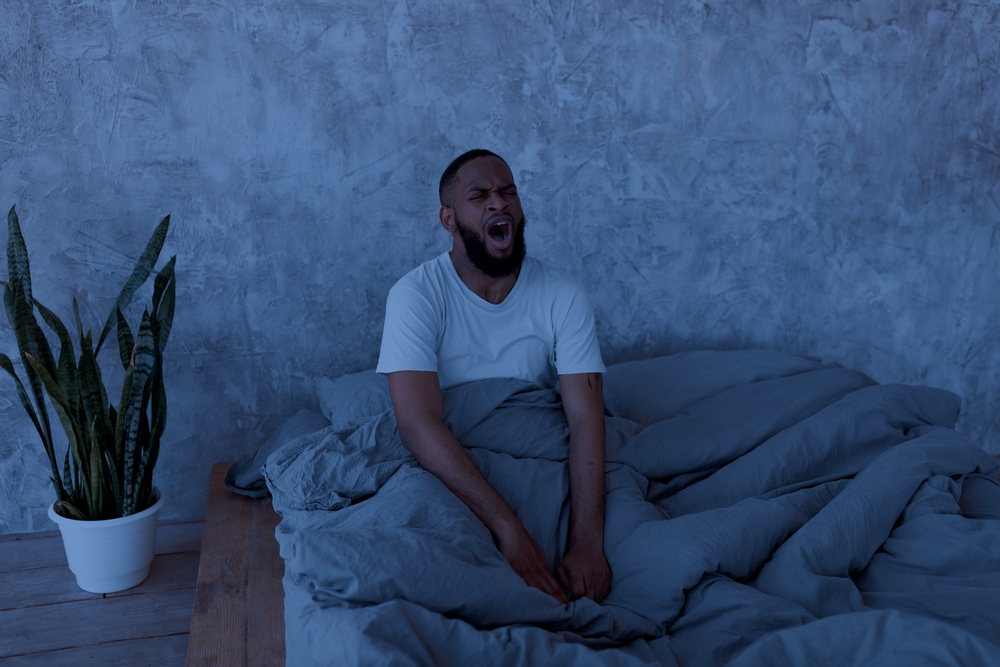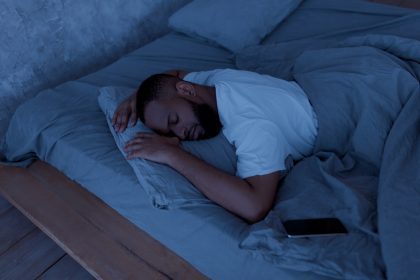Millions of men share a frustrating nighttime secret: they’re exhausted from waking up multiple times to use the bathroom. This disrupted sleep affects everything from daily performance to long-term health, yet many hesitate to discuss it with their doctors. Now, leading medical experts reveal the surprising causes behind these midnight disruptions and share effective solutions that go beyond the obvious.
The nighttime disruption no one talks about
Nighttime bathroom trips, medically known as nocturia, affect men of all ages, not just seniors. Professional athletes and executives alike struggle with disrupted sleep cycles due to these unexpected wake-ups, impacting their performance and recovery in ways many never suspect.
What your bladder is trying to tell you
These midnight wake-up calls often signal underlying health patterns that deserve attention. While occasional nighttime trips to the bathroom are normal, frequent disruptions can indicate important changes in your body. Understanding these signals helps identify potential health issues before they become more serious.
The prostate connection
Changes in prostate health play a crucial role in nighttime urination patterns. These changes can begin earlier than most men expect, affecting sleep patterns long before other symptoms appear. Beverly Hills specialists report seeing younger clients increasingly concerned about this issue, especially those in high-pressure careers where sleep quality directly impacts performance.
The sleep-disruption cycle
Each nighttime awakening creates a cascade effect on sleep quality. These interruptions disrupt natural sleep cycles, affecting hormone production and recovery processes. The impact extends far beyond just feeling tired the next day, influencing everything from cognitive function to physical performance.
Daily habits that make it worse
Simple everyday choices significantly affect nighttime urination patterns. Surprisingly, even the timing of regular activities like workouts and meals can influence bladder patterns. Hollywood trainers working with actors on physically demanding roles have discovered that adjusting daily routines often yields better results than medical interventions.
Hidden health connections
Recent research reveals unexpected links between nighttime urination and cardiovascular health. These connections offer new perspectives on managing what many consider a simple inconvenience. Understanding these relationships helps develop more effective, holistic approaches to treatment.
The stress factor
Mental state plays a larger role in bladder control than previously understood. High-pressure professionals often notice increased nighttime bathroom trips during stressful periods. This mind-body connection opens new avenues for managing the condition through stress-reduction techniques.
Natural solutions that work
Simple lifestyle adjustments can significantly reduce nighttime bathroom trips without medication. Success stories from leading medical practices show that attention to timing and daily habits often produces dramatic improvements. These natural approaches focus on working with the body’s rhythms rather than fighting against them.
Timing matters
The schedule of daily activities significantly influences nighttime urination patterns. Small adjustments to fluid intake timing, evening routines, and even exercise schedules can dramatically improve sleep quality. These changes work best when tailored to individual lifestyles and body rhythms.
When to seek help
While some nighttime urination is normal, certain patterns warrant professional attention. Warning signs include sudden changes in frequency, discomfort, or associated symptoms. Early evaluation often leads to simpler, more effective solutions.
The exercise connection
Physical activity impacts bladder patterns in surprising ways. Different types of exercise influence nighttime urination differently, and even the timing of workouts plays a role. Understanding these connections helps create exercise routines that support better sleep.
Understanding your body’s rhythms
Natural body cycles influence bladder patterns throughout the day and night. Working with these rhythms, rather than against them, leads to better results. This approach allows for more personalized and effective management strategies.
The recovery process
Positive changes often appear within weeks of making lifestyle modifications. These improvements build over time, creating lasting results that enhance overall health and well-being. The key lies in consistent application of targeted changes rather than dramatic overhauls.
Looking ahead
New research continues to reveal connections between lifestyle factors and bladder health. These insights offer hope for even more effective natural approaches to managing nighttime urination. The future looks promising for men seeking better sleep without relying on medication.
The message remains clear: nighttime urination, while common, shouldn’t be ignored. Understanding its causes and making informed lifestyle changes can lead to better sleep and improved overall health. Addressing this issue early prevents more significant problems later while enhancing daily quality of life.
















